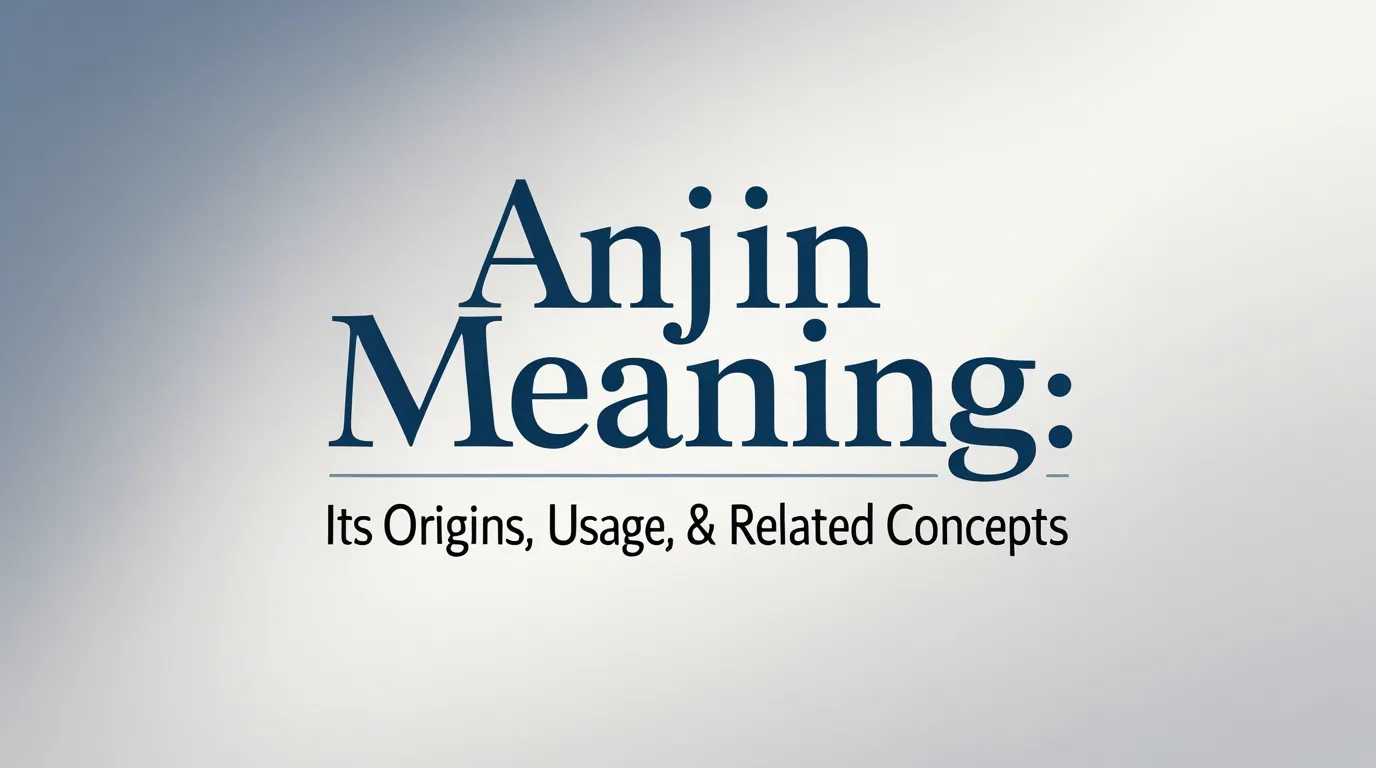The word “Anjin” carries a fascinating mix of cultural depth, historical intrigue, and modern-day relevance. Whether you’ve come across it in a historical novel, a Japanese drama, or while diving into martial arts philosophy, understanding the Anjin meaning opens a window into a world shaped by tradition and layered concepts. In 2025, as global interest in Japanese language, culture, and samurai-era stories grows, more people are exploring what “Anjin” truly represents, where it came from, and how it’s still used today. This article dives deep into the origin of Anjin, its linguistic and cultural usage, and the related concepts that make it such a rich and enduring term.
Origins of the Term “Anjin” – A Historical and Linguistic Overview
The primary meaning of Anjin (安心 or 按針) depends on its kanji (Japanese characters) and the context in which it’s used. Let’s explore both key interpretations:
- Anjin (安心) In this form, Anjin is made up of two characters:
- An (安) – meaning peace or safety
- Jin (心) – meaning heart or mind Together, it translates to “peaceful heart” or “mental calmness.” This interpretation is deeply rooted in Zen Buddhism and is often used in spiritual and martial arts settings to describe inner tranquility and centeredness.
- Anjin (按針) This version is far more historical. It refers to William Adams, the English navigator who became the first Western samurai in Japan during the early 1600s. The Tokugawa shogunate gave him the title “Miura Anjin”—which roughly means “pilot of Miura” or “navigator.” Here, Anjin means “pilot” or “helmsman”, derived from older nautical Japanese.
These two meanings—spiritual and navigational—shape the layered identity of the term Anjin.
Modern Usage of “Anjin” in 2025

In 2025, Anjin continues to appear in various cultural, academic, and pop culture spaces:
- Martial Arts & Zen Practices: In disciplines like Aikido, Anjin is invoked when discussing the importance of calmness and control. Practitioners strive for Anjin—a state of inner peace during movement.
- Literature & Media: The term gained global attention through James Clavell’s novel “Shōgun”, where the protagonist is loosely based on William Adams, the original Anjin-san. A renewed interest in the series in recent years has made the term familiar to global audiences.
- Language Learning: Learners of Japanese often encounter Anjin as part of vocabulary around emotions, meditation, and even historical titles.
- Spiritual Spaces: In temples and retreats, Anjin is used to describe a spiritual state of stability and grounded presence.
Related Concepts and Cultural References
To truly understand Anjin, it’s helpful to explore related terms and ideas:
- Fudoshin (不動心) – “Immovable mind”; a similar concept in martial arts where mental stability is key.
- Zanshin (残心) – “Remaining mind”; awareness after an action, often linked to Anjin in practice.
- Samurai Code (Bushidō) – The calm and collected Anjin state was valued among samurai, influencing their discipline and conduct.
- Kaizen (改善) – While more modern, the practice of continuous improvement connects with the inner peace of Anjin, especially in mindful productivity.
- Meditation (Zazen) – Many practitioners aim to achieve Anjin through meditation, blending mental stillness with awareness.
The term Anjin serves as both a spiritual goal and a symbolic title, bridging East and West, past and present.
Unique FAQs About Anjin
1. Is “Anjin” a Japanese name or a title?
It can be both. “Anjin” can be used as a descriptive title (e.g., navigator or spiritual state) or, historically, as part of a name, like “Miura Anjin.”
2. What’s the difference between “Anjin” and “Zanshin”?
Anjin refers to inner peace or a calm mind, while Zanshin is the awareness that remains after action—both are key in martial arts and meditation.
3. Who was the real “Anjin-san”?
William Adams, an English pilot who became a trusted advisor to the Shogun Tokugawa Ieyasu. He was the inspiration for characters like the one in Shōgun.
4. Can “Anjin” be used in modern conversation in Japan?
The spiritual version (安心, meaning peace of mind) is common in daily language. The historical or nautical meaning is rare outside specific contexts.
5. How can I achieve “Anjin” in everyday life?
Practices like meditation, mindful breathing, and martial arts training help cultivate Anjin—calmness under pressure and mental clarity.
Conclusion: Why “Anjin” Still Matters in 2025
In a fast-paced, digitally driven world, the meaning of Anjin feels more relevant than ever. Whether you’re chasing emotional balance, exploring historical narratives, or looking to deepen your martial arts practice, the concept of Anjin offers both a grounding principle and an aspirational goal. Its dual identity—as a state of mind and a historical title—makes it a truly unique and versatile term.So whether you’re seeking your own sense of peace or navigating the complexities of modern life, keep Anjin in mind. Sometimes, the calmest heart makes the strongest pilot.
















